|
| NEWS |
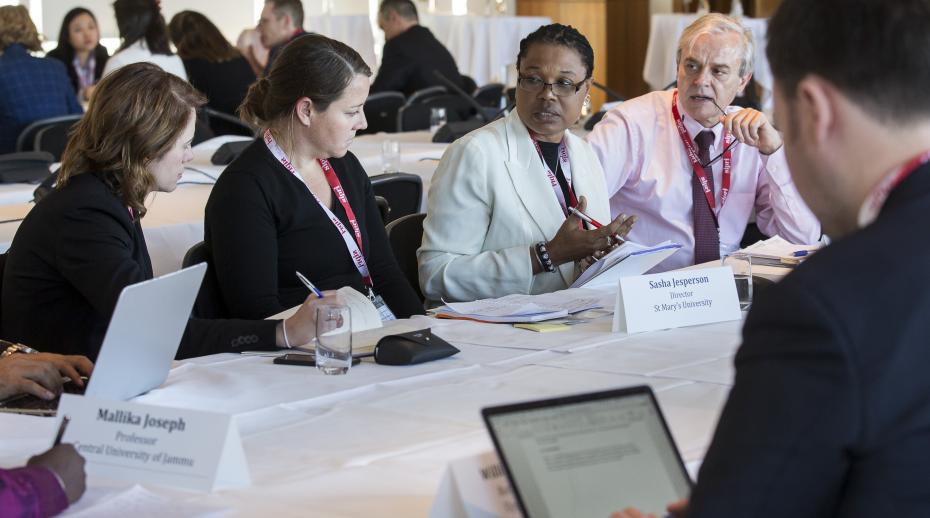 |
| Politics of peace in focus at fifth Stockholm Forum on Peace and Development |
| Over 200 high-level policymakers, researchers and practitioners will gather in Stockholm on May 7–9 for the fifth annual Stockholm Forum on Peace and Development. Co-hosted by SIPRI and the Swedish Ministry for Foreign Affairs, the 2018 Forum focuses on the politics of peace and seeks to identify concrete steps towards sustainable peace. |
|
|
Read more | Register for the public portion of the event (7 May) | Watch this film about the Stockholm Forum
|
|
|
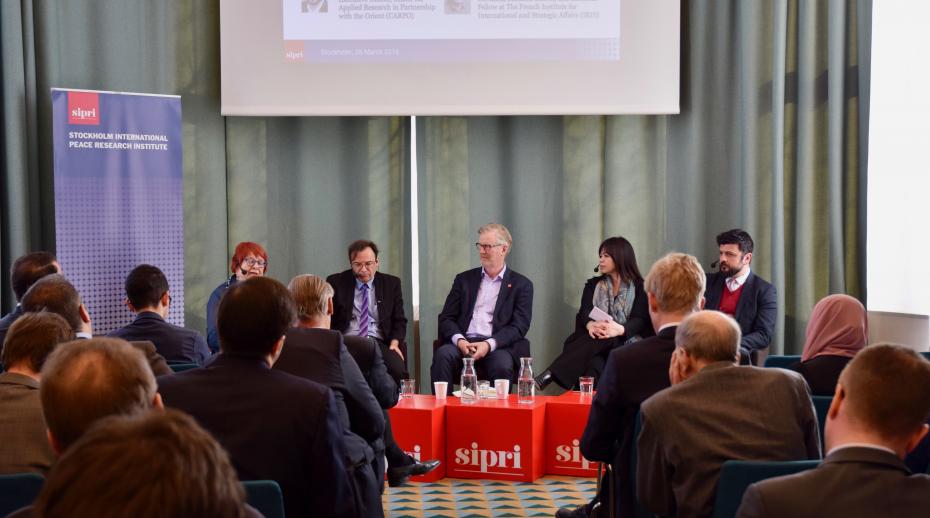 |
| SIPRI hosts expert discussion on the future of the Iran nuclear deal |
| On 28 March, SIPRI convened a panel of experts to discuss the fate of the Iran nuclear deal in light of US President Donald J. Trump’s ultimatum to withdraw the United States from the agreement. The focus of the expert seminar was on whether Europe can prevent the deal from unravelling. |
|
|
Read more | Watch the livestream of the event
|
|
|
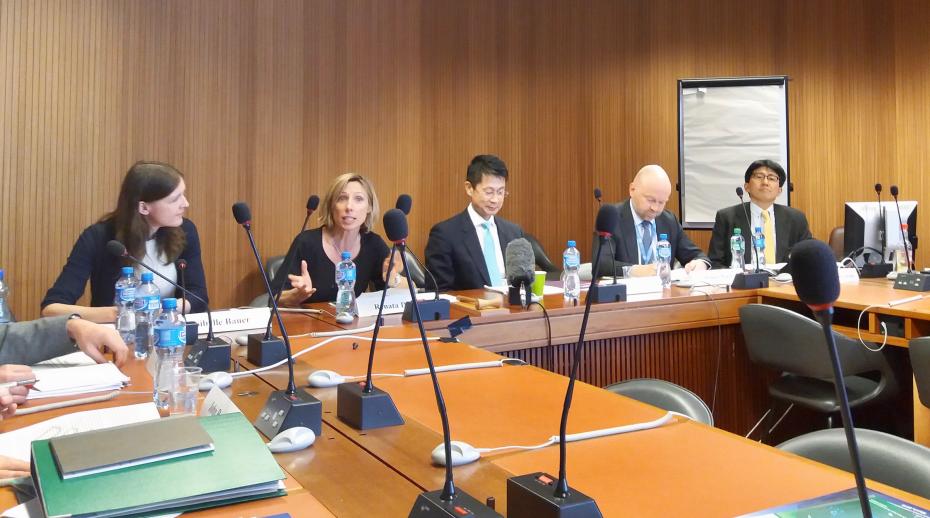 |
| SIPRI co-hosts side event at Non-Proliferation Treaty PrepCom in Geneva |
| SIPRI, together with Hiroshima Prefecture and the United Nations Institute for Disarmament Research (UNIDIR), hosted a side event, ‘Identifying concrete steps to move forward nuclear disarmament’, at the 2018 Preparatory Committee for the 2020 Nuclear Non-Proliferation Treaty Review Conference. |
|
|
Read more
|
|
|
| |
| Choose what you want to receive from SIPRI |
| SIPRI is committed to following the European Union’s General Data Protection Regulation (GDPR). We would like to invite you to update what you would like to receive from SIPRI at your personal link at the bottom of this newsletter. You may also choose to completely unsubscribe from receiving any of our electronic mailings. We sincerely appreciate your interest in SIPRI’s work. |
|
|
|
|
|
| COMMENTARY |
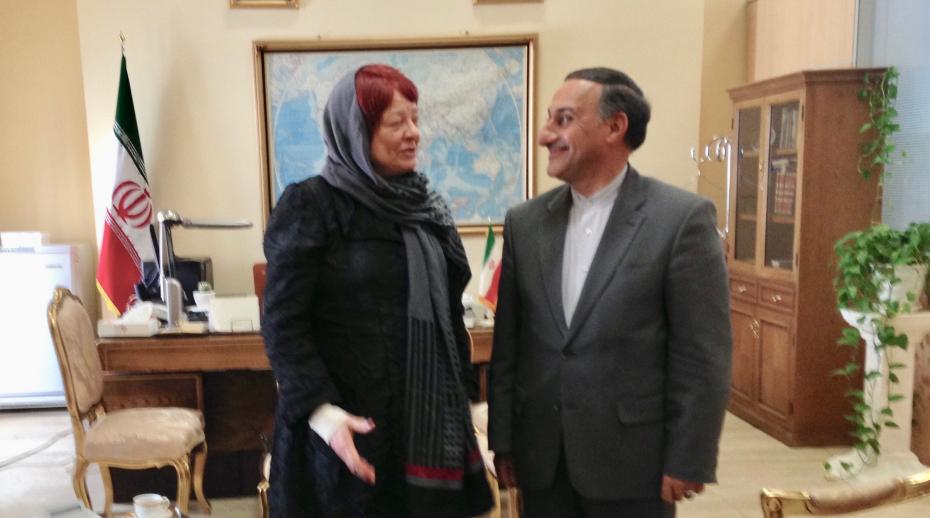 |
| The talk of the town in Tehran: Can the Europeans deliver? |
| Dr Tarja Cronberg, SIPRI Associate Fellow and the author of Nuclear Multilateralism and Iran: Inside EU Negotiations has revisited Tehran to meet with Iranian high-level officials and the EU, Chinese and Russian ambassadors to Tehran. Her ‘Tehran interviews’ form the background for this blog at this critical juncture for the Iran nuclear deal. |
|
Read the SIPRI blog
|
|
|
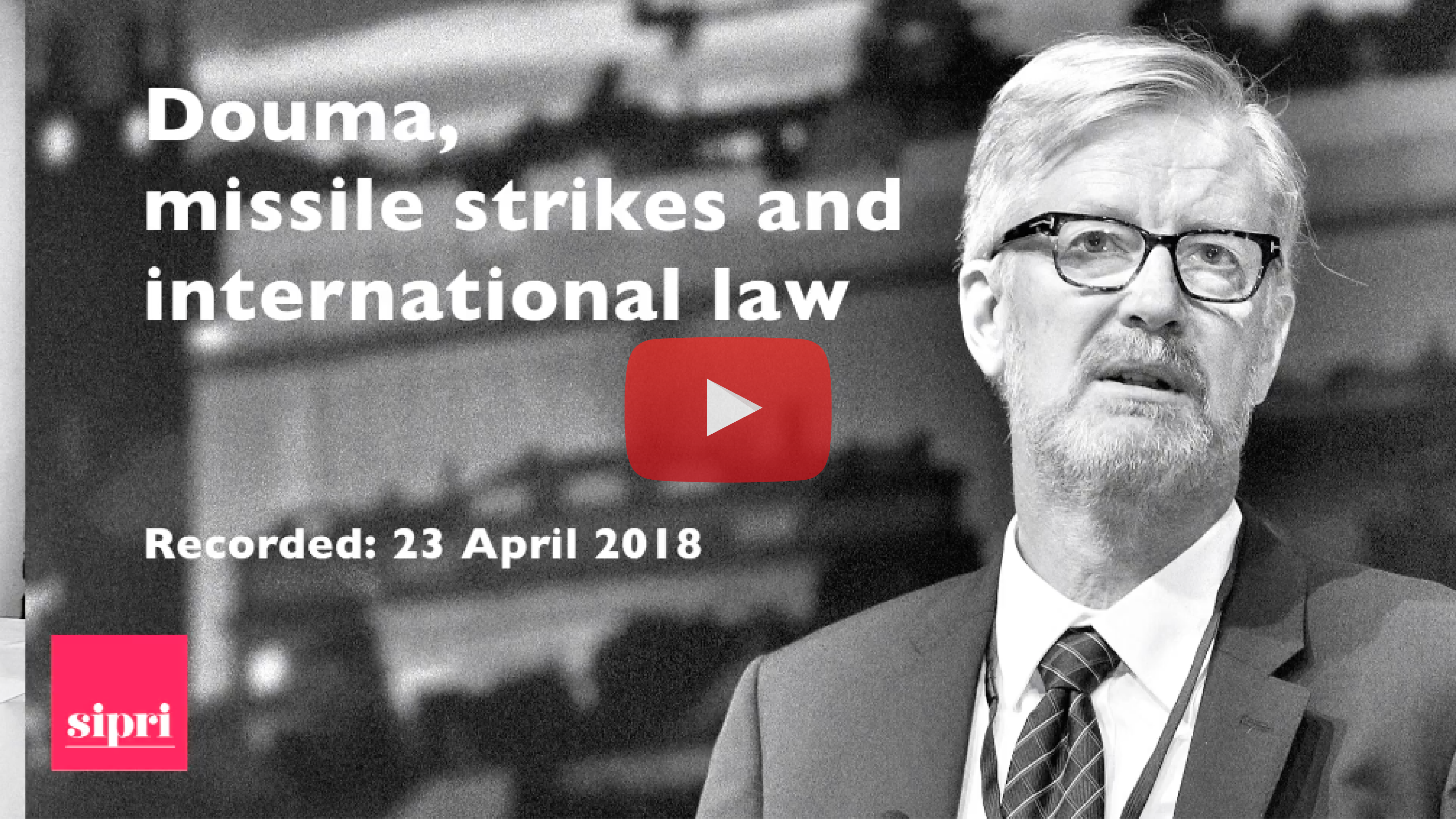 |
| Peace Points: Douma, missile strikes and international law |
| Early this month, the United States, the United Kingdom and France launched strikes which targeted Syrian chemical weapons sites. Reflecting on these developments, Dan Smith argues that striking before the Organisation for the Prohibition of Chemical Weapons (OPCW) conducted its investigation damaged diplomacy. |
|
Watch the Peace Points episode
|
|
|
|
| UPCOMING EVENTS |
| |
| 10 May 2018 |
| US event on SIPRI’s international arms transfers and military expenditure data |
|
SIPRI will partner with the Stimson Center for the US launch of SIPRI’s latest data on arms transfers and military expenditure. The event, ‘Dealing in Defense: Examining Trends in Global Arms Sales and World Military Expenditure’, will be held in Washington, DC, and will be livestreamed.
|
|
Read more on the Stimson Center website
|
|
| |
| 28 May 2018 |
| SIPRI hosts the inaugural ‘SIPRI Lecture’ |
|
On 28 May, SIPRI will hold the inaugural ‘SIPRI Lecture’—a new annual high-level lecture in Stockholm on topics related to peace and security. Initiated by SIPRI Chair, Ambassador Jan Eliasson, the lecture will host HE Dr Hans Blix to share his reflections on issues in today’s world that pertain to SIPRI’s mandate of contributing to an understanding of the conditions for peaceful solutions of international conflicts and for a stable peace. The lecture will be followed by a distinguished panel discussion. More information is forthcoming.
|
|
|
|
| |
| 11–12 June 2018 |
| Baltic Sea Region Conference |
|
SIPRI and the Ministry for Foreign Affairs of Sweden will host the international conference ‘Managing complexity: Addressing societal security challenges in the Baltic Sea region’. The conference will discuss how to provide safety for citizens and build effective resilience in the face of various contingencies, ranging from climate change to extremism and major infrastructural disruptions.
|
|
Read more
|
|
|
| RECENT EVENTS |
| |
| 13 April 2018 |
| Peacekeeping reform: Making UN peace operations more fit for purpose |
| This event focused on UN peacekeeping reform in the context of gender mainstreaming, the safety and security of peacekeepers and the UN’s peacekeeping budget. The seminar, which was co-organized by the Embassy of the Republic of Indonesia—the Embassy of Ethiopia, the Embassy of Brazil and SIPRI—brought together experts from the hosts’ respective countries and Sweden. |
|
Read more
|
|
|
| JOB VACANCIES |
| |
| Three current openings |
|
SIPRI is currently recruiting for three positions:
- Programme Director and Senior Researcher, China and Global Security Programme (Closing date: 9 May)
- Programme Coordinator, Peace and Development (Closing date: 11 May)
- Financial Coordinator/Controller (Position open until filled)
|
|
Read more
|
|
|
| PUBLICATIONS |
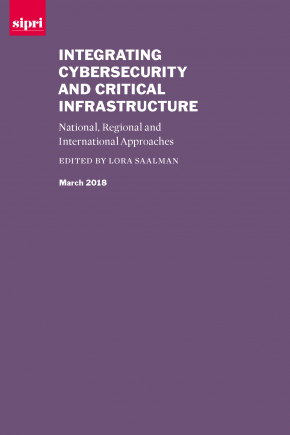 |
| Integrating cybersecurity and critical infrastructure: national, regional and international approaches |
| In this volume, six experts from industry, government, academia and the legal sector delve deeper into several key target areas of cybersecurity and critical infrastructure—namely system integrity, the role of the private sector and legal frameworks. Their essays provide a baseline for understanding how these issues are unfolding at the national level in Japan, at the regional level in Europe and at the international level under the United Nations. |
|
Read the publication
|
|
|
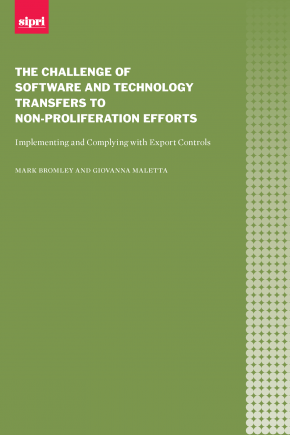 |
| The challenge of software and technology transfers to non-proliferation efforts: Implementing and complying with export controls |
| The paper examines (a) the different ways in which transfers of software and technology occur; (b) the proliferation-related challenges they generate, (c) the way controls are structured in the multilateral export control regimes and implemented in EU member states, and (d) the particular challenges that implementation and compliance present for EU governments, companies and research institutes. The conclusions highlight steps that different stakeholders can take to improve the consistency and effectiveness of software and technology controls. |
|
Read the publication
|
|
|
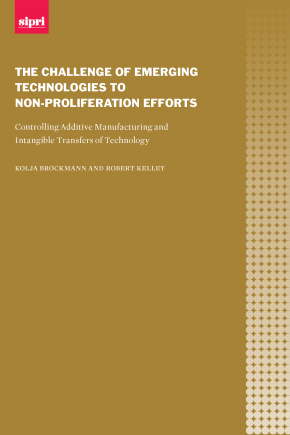 |
| The challenge of emerging technologies to non-proliferation efforts: Controlling additive manufacturing and intangible transfers of technology |
| The paper reviews (a) the state of the art in additive manufacturing (AM); (b) its ability to produce military equipment and dual-use items; (c) the application of export controls to AM and their implementation at the national level; and (d) the challenges that implementation and compliance present for governments, companies and research institutes. The conclusions summarize potential options and considerations when expanding controls on AM. |
|
Read the publication
|
|
|
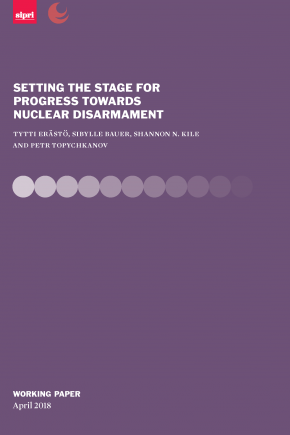 |
| Setting the stage for progress towards nuclear disarmament |
| This SIPRI working paper identifies 10 practical steps to revitalize the 1968 Non-Proliferation Treaty as the principal normative and legal foundation of the global nuclear disarmament and non-proliferation regime. The working paper sets the stage for future concrete steps and initiatives to reduce the role of nuclear weapons and to eventually eliminate them. Funding for the working paper was provided by Hiroshima Prefecture. |
|
Read the publication
|
|
|
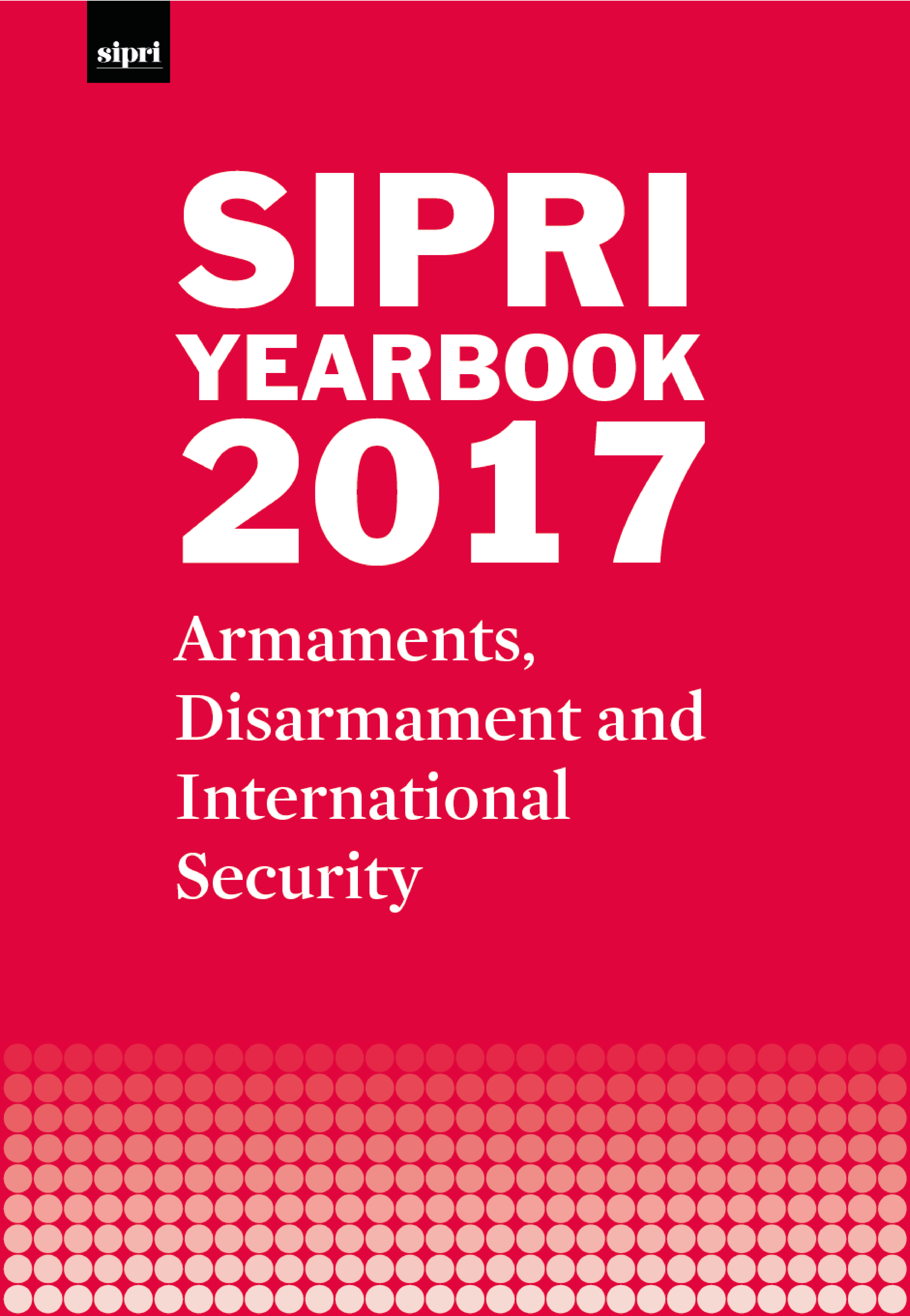 |
| SIPRI Yearbook 2017 |
The 48th edition of the SIPRI Yearbook is a compendium of data and analysis in the areas of security and conflicts; military spending and armaments; and non-proliferation, arms control and disarmament. It covers developments during 2016, including:
- aspects of the conflicts in the Middle East and North Africa;
- the peace agreement in Colombia;
- forced displacement in fragile contexts; and
- the sustaining peace framework of the United Nations.
|
|
Browse the contents page | Read the summary [PDF]
|
|
|
| |